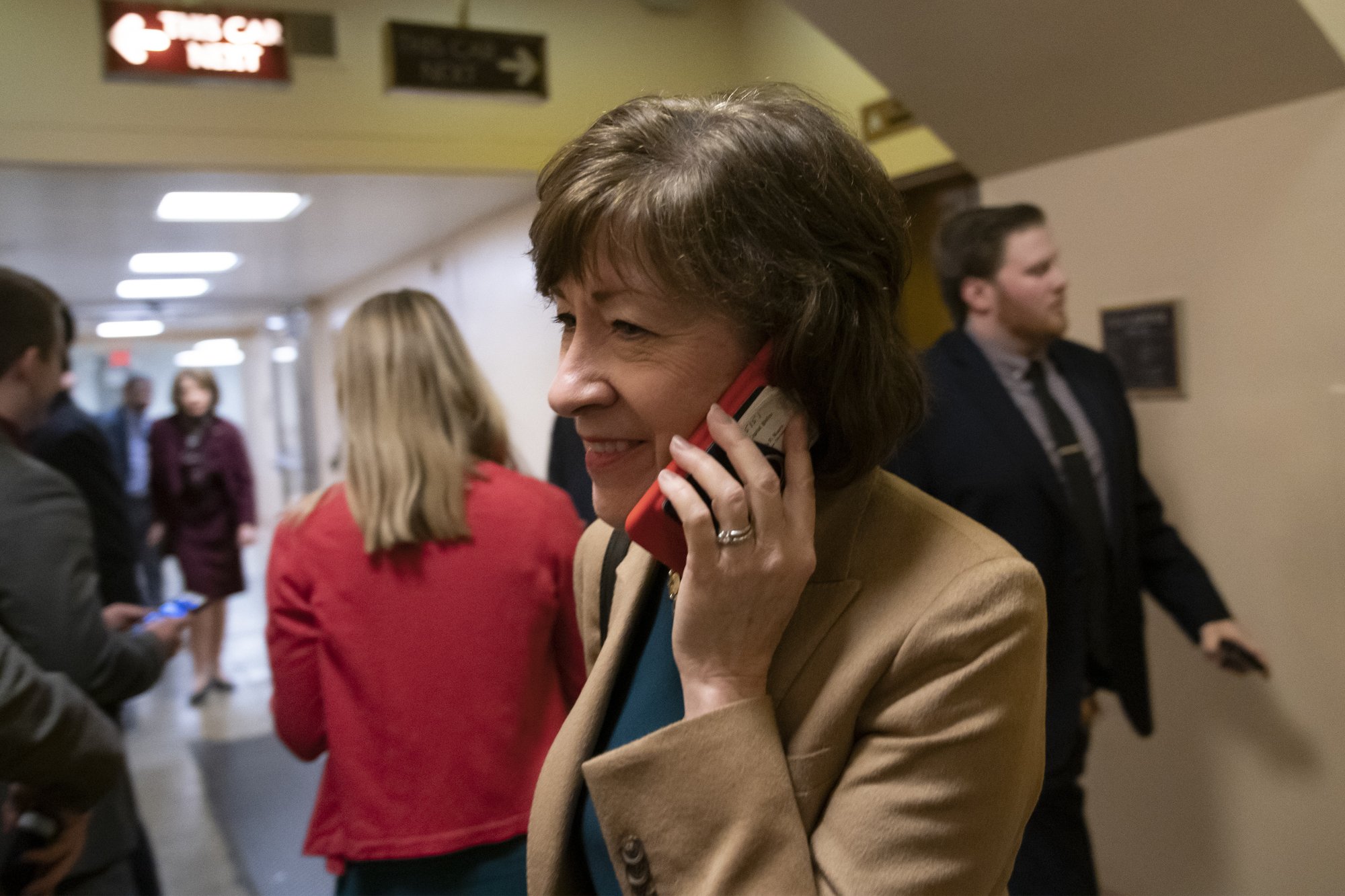
US Sen. Susan Collins, R-Maine, arrives in the Senate where she has said she will vote for a resolution to annul President Donald Trump's declaration of a national emergency at the southwest border, on Capitol Hill in Washington, Thursday, March 14, 2019. (Photo: AP)
Washington (People’s Daily) -- The US Senate voted Wednesday to end the national emergency declared by President Trump over the situation on the southern border. The resolution has already passed the House of Representatives and will next be on President Trump's desk. Trump has made it clear that he will use his veto power to block the resolution.
Trump declared national emergency on the southern US border last month, citing drug trafficking and illegal border crossings as threats to border security. Trump's decision was largely aimed at bypassing the Congress to fund a wall along the US-Mexico border, which is one of his major campaign promises. However, the unconventional move has drawn strong opposition from congressional Democrats and some Republican lawmakers.
Under the National Emergency Act of 1976, Congress has the power to end a national emergency declared by the President. Twelve Republican Senators voted to end Trump’s national emergency on Thursday, more than analysts had expected. The New York times believes this reflects the ambivalence of Republican lawmakers, saying “The number of Republican defections underscores the turmoil within the Republican Conference, where senators were torn between supporting the president’s vision for border security and asserting Congress’s constitutional prerogative to dictate federal spending.”
Some Republican lawmakers also argue that the Trump Administration's imposition of a border wall by declaring national emergency sets a dangerous precedent, and that a future Democrat President could use the same approach to enforce mandates on gun control, climate change and other issues.
Trump has made it clear that he will use his veto for the first time over the resolution. Early Thursday morning, Trump tweeted, “I am prepared to veto, if necessary. The Southern Border is a National Security and Humanitarian Nightmare, but it can be easily fixed!” After the Senate vote in the afternoon, Trump's tweet was more direct: “Veto!”
It is less likely that Congress will ultimately succeed in blocking the Trump Administration from implementing the executive order. If Trump himself were to use his veto on the case, more than two-thirds of the votes in both chambers of Congress would be needed to override his veto. As things stand, not enough Republicans in either chamber will support it.
The national emergency vote came a day after the Senate voted 54 in favor of a separate resolution that would require the Trump Administration to curtail military support for Saudi Arabia in the Yemen war. On Wednesday, seven Republican Senators voted in favor of the Yemen resolution, which is interpreted by the analysts as a sign of rising discontent within the Republican party over the Trump Administration's Middle East policy. The bill is expected to pass the House next, meaning Trump will likely use his veto twice in the near term.


